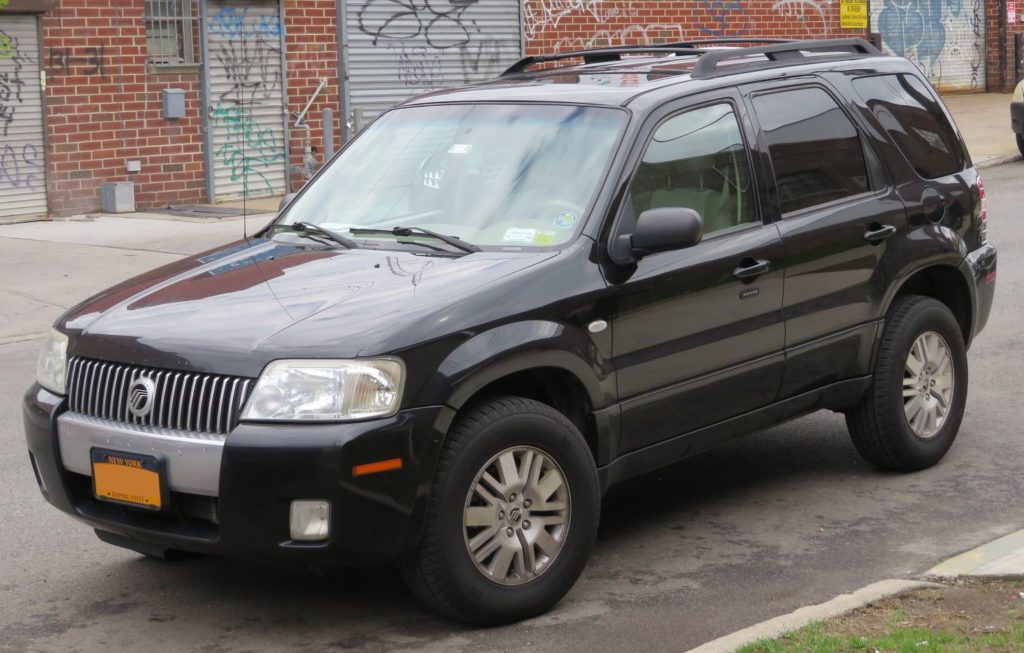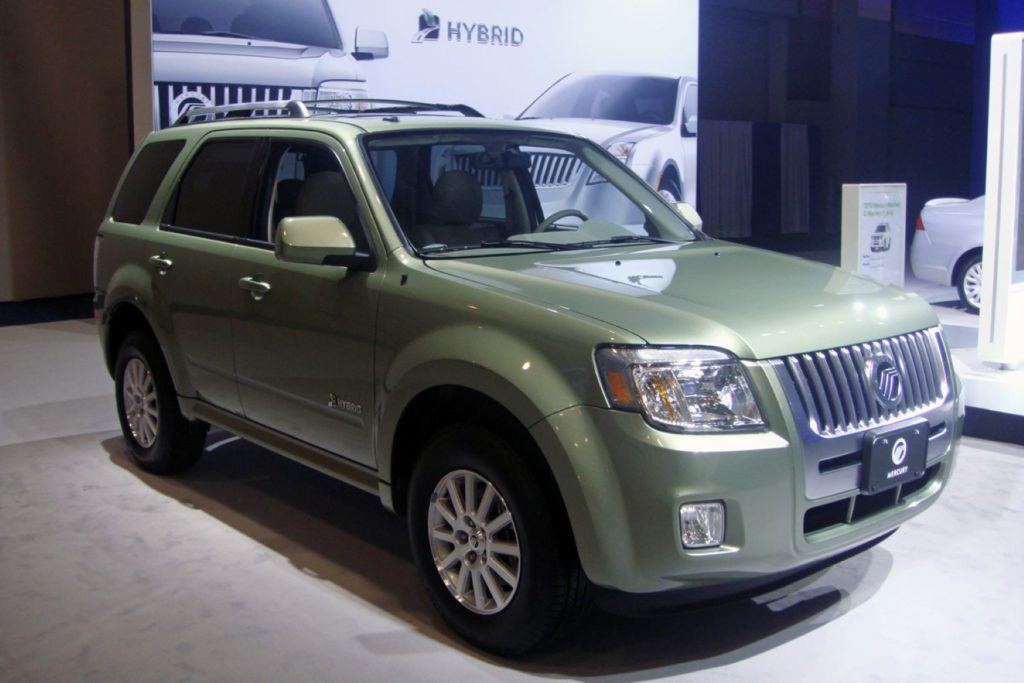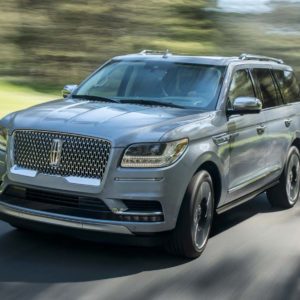The Mercury Mariner is a compact crossover SUV that was made from 2005 to 2011. The Mariner was last sold in 2011, when Ford decided to discontinue the Mercury brand due to declining sales. The Mercury Mariner is very similar to the Ford Escape, but the Mariner has more upscale features. As Mariners are already a decade old, they only retain 15% to 25% of their original value. AutoPadre.com estimates that the Mercury Mariner will continue to depreciate, losing 12% of its current value in the next five years.
Is the Mercury Mariner Reliable?
The Mercury Mariner has mixed reviews from owners on RepairPal. The model has received an average score of 3.7 out of 5.0 from the 33 users who reviewed the model on the site. The owners who gave a satisfactory score of 3.0 said they’ve experienced a variety of isolated issues with the model, but about half the owners say that they are quite satisfied with the model and claim that their Mariner has been reliable.
The Mariner has also gotten good scores from users on Cars.com. The model got an average of 4.5 out of 5.0, with 90% of the owners recommending the vehicle. One user who reviewed the vehicle in 2020 even said the Mariner is “the best car I’ve ever owned!” Many users praised the Mariner’s features and tendency to be low maintenance. However, there are also a few owners who experienced isolated issues like brake and transmission issues, among many others.

What Makes the Mercury Mariner Reliable?
Many people consider the Mercury Mariner a dependable daily driver, mostly thanks to the following factors:
Excellent Fuel Efficiency
Though a vehicle’s miles-per-gallon varies depending on where you drive, how you drive, and how much weight you make your vehicle carry, you can expect an average of 20-25 mpg with the Mercury Mariner.
Smooth and Easy Driving
Drivers have remarked that the Mercury Mariner is agile and nimble, which makes it satisfying to drive. It’s also quiet and doesn’t rock or vibrate much on the road, improving the overall driving experience.
Standard Safety Features
The Mercury Mariner comes with antilock brakes, stability control, and traction control. It also has airbags, including full-length head curtain airbags, to protect passengers during collisions.
Easy to Handle
Another factor that makes the Mercury Mariner such a reliable vehicle is its tight and consistent steering. It’s exceptionally easy to handle and park.
Comfortable Interior
Many Mercury Mariner owners agree that the SUV is a comfortable ride. The seats are cozy and pleasant to sit in, while the interior itself is spacious enough to guarantee comfort for both passengers and the driver.
Mercury Mariner Common Problems
Even though the Mariner has good user reviews, there is still a percentage of owners who had problems with the model. This list will try to cover the Mercury Mariner’s most common problems.

Steering Shaft Issues
Some Mariners had a steering shaft that would make a knocking or popping noise when turning. This noise can sound alarming, according to several owners. The frequency of the sound varies as some owners report hearing it every time they turn the wheel while others only hear it only now and then. This issue affects the Mercury Mariners made in 2005, and 2006, as well as the ones made from 2008 to 2011.
According to RepairPal, this issue is caused by a faulty steering shaft and coupling U-joint. To fix the issue, these parts need to be replaced.
Power Steering Failure
Power Steering Failure is the most common issue of the Mercury Mariner. Many owners have reported that their power steering assist would suddenly stop working. Several owners have reported that their steering wheel would suddenly tense up, leading to them narrowly avoiding accidents.
There are almost 300 recorded reports of this problem occurring in the 2008 model alone. This problem is also present in the 2009 to 2011 models.
Ford issued a recall for Mercury Mariners made from 2008 to 2011 to fix this issue. The recall made dealerships check if Mariners had trouble codes related to the power steering control module. If a Mariner didn’t have the trouble code, only a software update was performed. This update was meant to allow the infotainment system to prompt the owner if an issue does occur and instruct them to go to dealerships ASAP. However, when the issue wasn’t reported immediately, Ford refused to repair the vehicle for free. This left owners paying up to $1,500 for a problem that Ford should have fixed in the recall.
Users who had to repair their vehicles themselves have reported that they needed to replace the steering column and torque sensors to fix the issue.
Transmission Failure
Some owners have reported clunky shifting and a whining noise that eventually leads to transmission failure. This is the worst issue in the Mariner and has happened to several Mercury Mariners made from 2006 to 2007.
Some of the reports have said that the transmission failure wasn’t preceded by any issues or symptoms. Hence, owners were surprised when they found out that the entire transmission needed to be repaired. People haven’t identified what causes the transmission to suddenly give out, but one of the causes could be low transmission fluid that causes excessive wear.
Transmission failure is expensive to repair and typically requires the transmission to either be replaced or rebuilt, which is extremely labor-intensive and costly.
Blower Motor Issue
An issue with the air-conditioning system causes the blower motor to only turn on when it’s set on its high setting. As a result, some owners had to deal with having the air-conditioning set to its max airflow setting or not having airflow at all. Some 2008 to 2011 Mariners had this issue, and the blower motor resistor is the main culprit. The blower motor resistor is essentially the switch that controls how much electricity the blower motor will receive. Blower motor resistors are prone to corrosion build up, and this is likely what causes them to fail.
A blower motor resistor for the Mercury Mariner typically costs around $20 to $80.

Cooling Pump Failure on Hybrid Models
Hybrid models of the Mercury Mariner are equipped with a cooling pump that’s meant to cool the electronics responsible for the hybrid system. This cooling pump could fail and result in the SUV suddenly losing power or its engine shutting down. Owners who experienced the issue felt unsafe given the issue can happen while driving at highway speeds.
The coolant pump had brushes inside that experienced a higher rate of wear, which caused the pump to wear out prematurely. In response, Ford issued a recall for Mercury Mariner hybrid SUVs manufactured from 2006 to 2010. Ford will inspect and replace the original motor electronics coolant pump with an improved brushless pump free of charge.
These issues may be a deal-breaker if you’re planning to get a Mercury Mariner. However, it’s good to note that most of these issues only affect a small percentage of all models. If you’re planning to buy a Mercury Mariner, then you should probably look more closely at the steering and transmission of the SUV you’re inspecting as those parts are the most prone to major issues.
Where to Get New Parts for Your Mercury Mariner
Road trips are more memorable when you’re driving a classic like the Mercury Mariner一but not when it has damaged or worn-out parts affecting its performance.
The good news is that CarParts.com is your one-stop shop for Mercury Mariner replacement parts and accessories.
We have a great selection of precision-engineered parts that have passed the highest quality control standards in the industry. All products are carefully handpicked by automotive professionals, so you’re sure to get parts that are built to last.
Enter your SUV’s specifications into our vehicle selector for a seamless online shopping experience. Order now, and we’ll deliver your product straight to your doorstep in as fast as two business days.
You can also call our toll-free hotline anytime. Our team is available round the clock to assist you.
Shop now, and take advantage of our unbeatable deals!
Any information provided on this Website is for informational purposes only and is not intended to replace consultation with a professional mechanic. The accuracy and timeliness of the information may change from the time of publication.


















